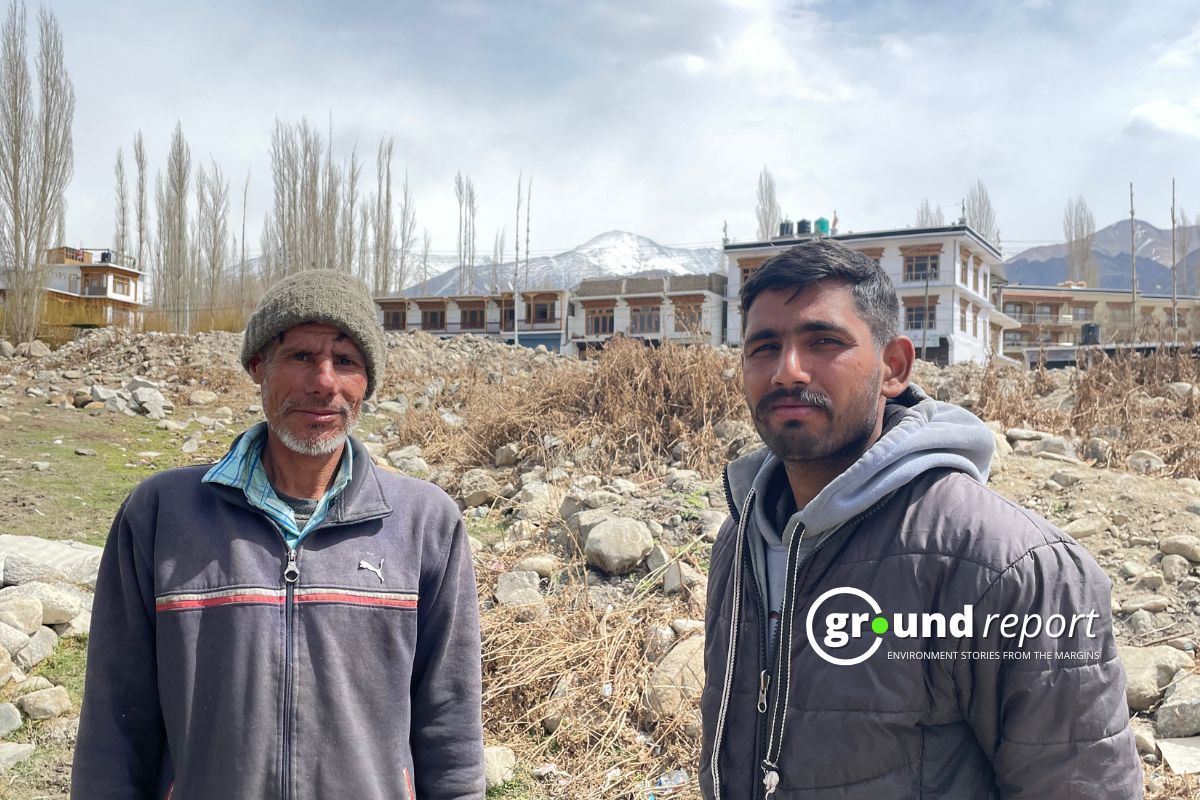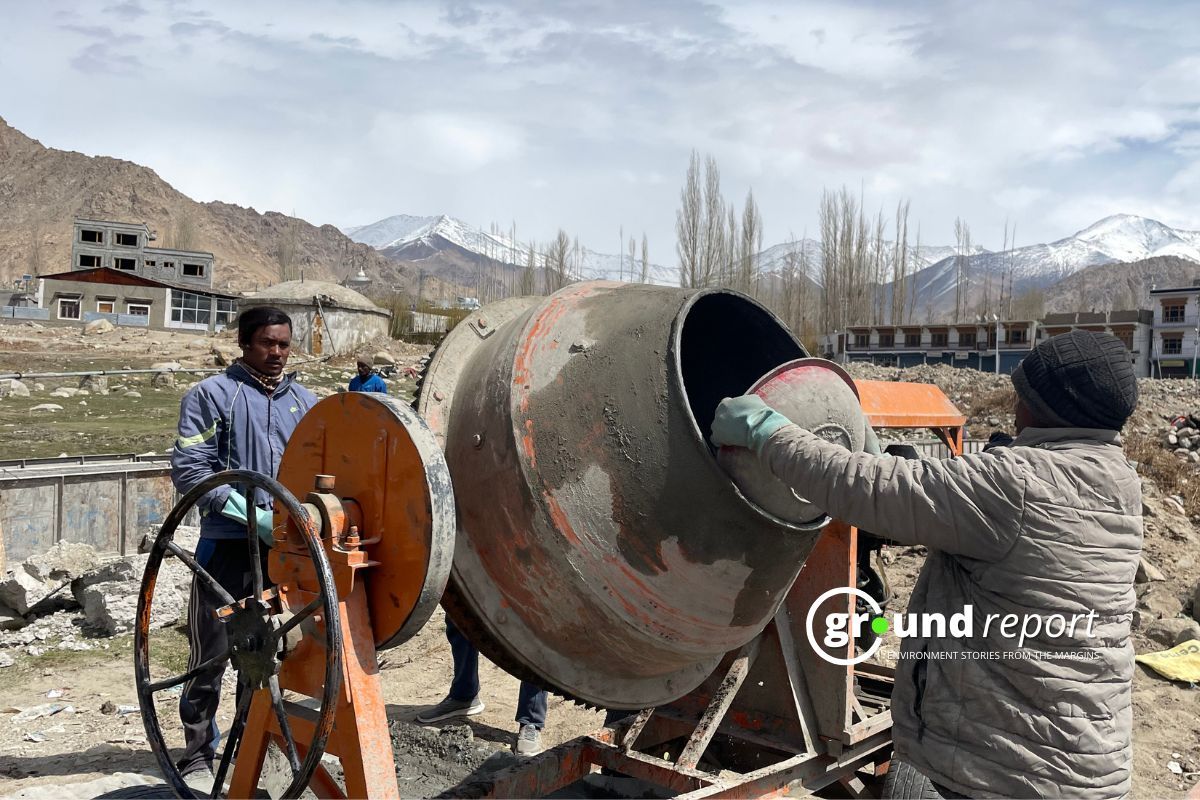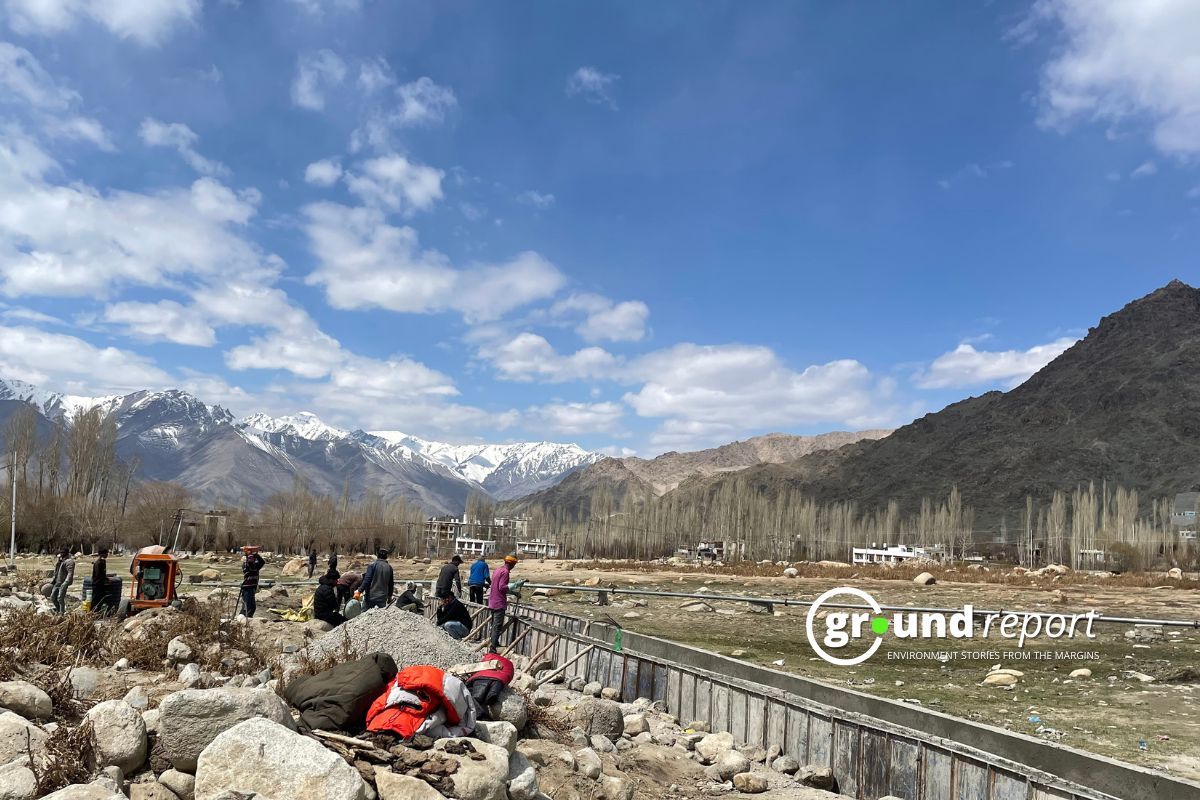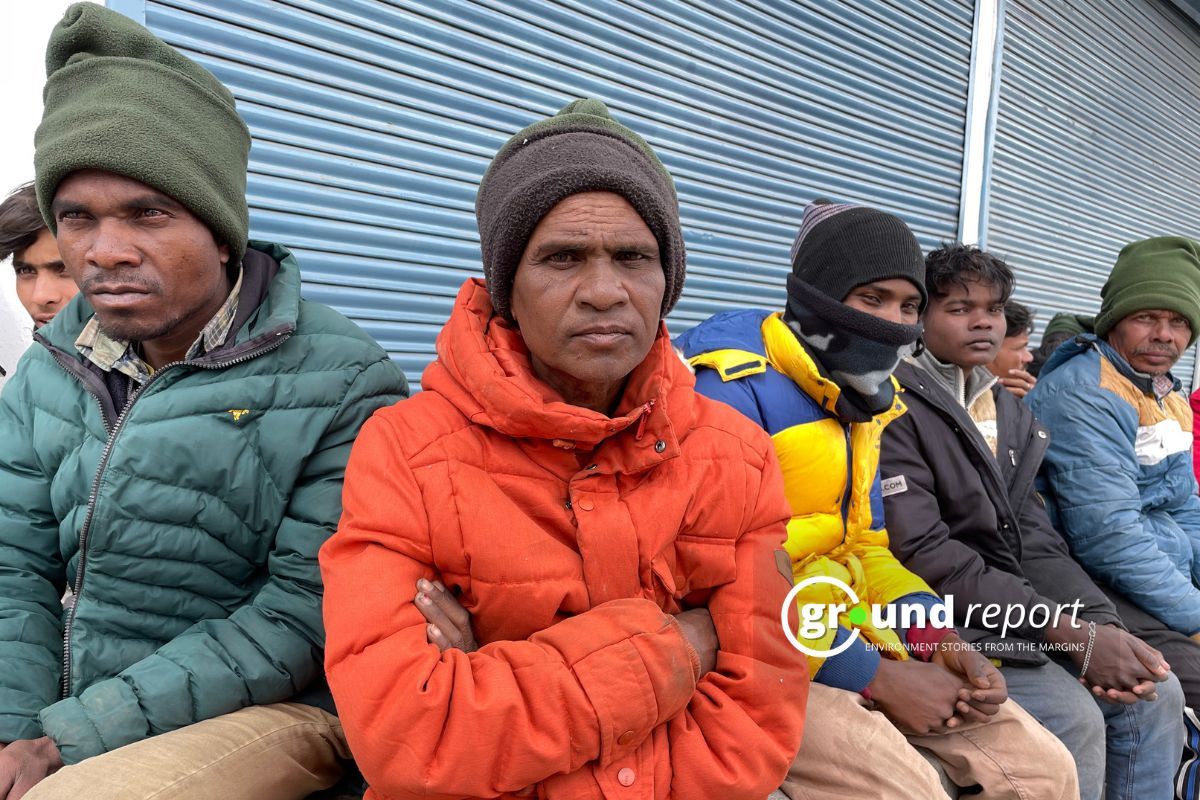Twenty-two-year-old Pawan, a migrant worker, gazes out at the snow-capped peaks of the Himalayas and reminisces about his journey from his village in Pathankot, Punjab, to Leh, a city in the Indian Union territory of Ladakh. “My passage from Punjab to Leh was like a pilgrimage for a better life,” he says. It’s been two years since he started working as a carpenter in Leh, the largest city and joint capital of Ladakh. A city hundreds of kilometres away from his friends and family. “There were days when the sunlight was generous, making labour seem like a blessing. Then there are times when the cold is piercing, and chances of getting work become difficult,” he adds.
Pawan has joined the list of thousands of seasonal migrant workers who come to Leh in search of work and a better life from different corners of the country. There are no official records with the local labour department on the numbers of migrant workers in Leh however according to media reports the estimate could be over 5,500.
Migrant labourers from Jharkhand, Bihar, Punjab, West Bengal, and Uttar Pradesh work here from March to October, departing during winters when the harsh weather makes survival difficult for them.
“My life has brought me here, among these tall mountains, to carve out my path,” Pawan reflects on his journey. “I’ve always believed in hard work. School wasn’t for me; I wanted to create things with my hands, to turn dreams into reality. That’s why I became a carpenter, shaping my future with every swing of the hammer,” he shares.
Leh, located at an average altitude of 11,000 feet above sea level, features a landscape defined by majestic mountains and deep valleys. Upon reaching Leh, migrants usually take 3-4 days off work to acclimatise to the high altitude. They prioritise rest, socialising with fellow migrants, and leisurely strolls around town to adjust to the thin air. Some may experience breathlessness, especially when working at higher elevations, due to the lower oxygen levels in the air.
Strong bonding
Reflecting on his journey to Leh, Pawan shares, “When I first heard about Leh, I was determined to come here, but I lacked the funds and didn’t want to burden my family.” His problem was solved by a friend who introduced him to a contractor. The contractor helped him cover his expenses and allowed him to repay later in Leh. “The contractor also helped me find work, and I gradually settled the debt,” Pawan narrates. “The contractor’s kindness didn’t stop there. Even now, he checks on my well-being, offering guidance and support whenever needed,” he adds.

“In the life of labour, you see beauty in the struggle,” Pawan reflects, his eyes revealing years of hard work and determination. “It’s not just about earning money– it’s about building something that lasts, leaving a mark on the world that shows your dedication.”
“Even with challenges, we labourers stick together,” he adds with a smile. “We share stories of success and failure, finding comfort in the bonds formed through tough times. In the end, it’s not just about the job; it’s about the journey we share, seeking our futures in this big world.”
Harsh Winters
In winter, the Zojila Pass that links Leh to Srinagar is usually closed, isolating the region from the rest of the country. It typically reopens in late March or early April. This severe winter causes a shortage of fresh vegetables in Leh because farming stops due to the cold weather, making it impossible to grow crops locally. Also, goods flown in become pricey and hard to find, making it tough for labourers to get them regularly.

Workers encounter major difficulties at the beginning and end of the working season, especially in autumn when the weather gets cold. The cold affects their physical health and hygiene because many don’t have warm water for bathing. Living conditions are often dirty, with several workers sharing small rooms, making them more vulnerable to diseases.
Busy work schedules also make it hard to stay clean, especially in colder months. While most go to private clinics or government hospitals in Leh for medical help, mental health issues like depression and anxiety due to unemployment are often ignored.
Poverty back home
In rural areas of India, low income drives people to seek better-paying jobs where demand for labour is high and wages are better. In their home states, average daily earnings barely reach 200 rupees per person, but in Ladakh, it’s around 700 rupees per person.
Family dynamics greatly influence the decision to migrate. Large families often struggle with high dependency ratios, leading to hidden unemployment and low incomes, ultimately resulting in a lower standard of living.
Similarly, Munawwar Lal, a carpenter from Pathankot in Punjab, feels the weight of responsibility for caring for loved ones, compelling him to migrate in search of better opportunities beyond his hometown.
Weather and climate also significantly influence migration patterns. As summer approaches, the allure of pleasant temperatures in Ladakh attracts more seasonal daily wage labourers to the city. Additionally, the onset of heavy rains and the risk of tropical diseases like cholera and dengue prompt even more migration as people seek refuge in safer environments.
Specialisation in different professions further limits the employment outlook. From plastering to plumbing, painting, and carpentry, each job is assigned to workers from different fields who showcase their knowledge. However, despite promises of jobs, challenges remain.

For the past two years, Sixty five-year-old Lal confides, his voice filled with the pain of being away from his wife and children. “Their absence weighs heavily on my heart every day,” he shares. “It’s been two years since I found refuge in Ladakh. The pay is better here, you know? And it helps to be surrounded by people who understand my routine,” he adds.
“The chill seems insignificant when weighed against,” says Munawwar Lal, his eyes reflecting the silent struggle of yearning and longing. “But what choice do we have? We move forward, for them, for ourselves.”
“I had a small piece of land. But last year, unseasonal rains destroyed my crops, leaving me with nothing to recover,” Lal shares. Forced to seek work as a migrant labourer, he explains, “Now, I work twice as hard to provide for my wife and kids. It’s a different kind of struggle, but I fight with all my strength.”
Workers in Leh have embraced technology as a crucial way to stay connected. With smartphones, they keep in touch with their families back home, finding solace in knowing their loved ones are safe.
Interacting with fellow workers from different parts of the country is vital for many migrants in Leh. During the day, they focus on their jobs in the city and surrounding areas.
Follow Ground Report for Environmental News From India. Connect with us on Facebook, Twitter, Koo App, Instagram, WhatsApp and YouTube. Write to us at GReport2018@gmail.com and subscribe to our free newsletter.
Don’t forget to check out our climate glossary, and learn difficult environmental terms in simple language.







